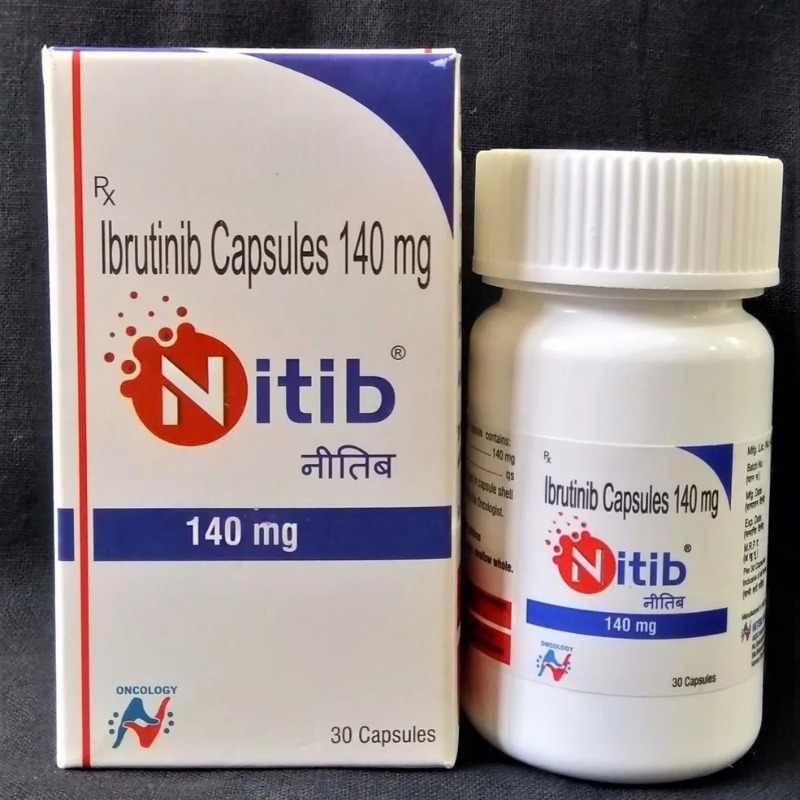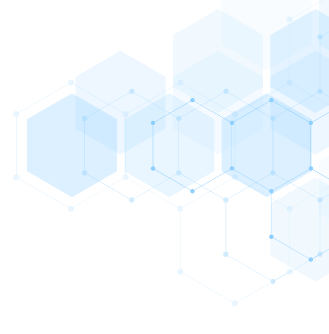DESCRIPTION
Mechanism of Action
• Irreversible small-molecule inhibitor of Bruton’s tyrosine kinase
(BTK).
• BKT is a key signaling molecule of the B-cell antigen receptor (BCR)
and cytokine receptor pathways.
Mechanism of Resistance
• None well-characterized to date.
Absorption
The absolute oral bioavailability has not been well-characterized to date.
Peak plasma drug levels are achieved in 1-2 hours after ingestion.
Distribution
Extensive binding (97%) to plasma proteins. Steady-state drug levels are
reached in approximately 8 days.
Metabolism
Metabolism in the liver primarily by CYP3A4 and to a minor extent by
CYP2D6 with formation of several metabolites. PCI-45227 is a dihydrodiol
metabolite with inhibitory activity against BTK, although significantly less
than parent drug. Elimination is mainly hepatic (80%) with excretion in the
feces. Renal elimination of parent drug and its metabolites account for only
<10% of an administered dose. The terminal half-life of the parent drug is
7–8 hours.
Indications
1. FDA-approved for patients with mantle cell lymphoma (MCL) who
have received at least one prior therapy.
2. FDA-approved for patients with CLL who have received at least one
prior therapy.
Dosage Range
1. MCL: Recommended dose is 560 mg PO daily
2. CLL: Recommended dose Is 420 mg PO daily
Drug Interaction 1
Phenytoin and other drugs that stimulate the liver microsomal CYP3A4
enzymes, including carbamazepine, rifampin, phenobarbital, and St. John’s
Wort—These drugs may increase the metabolism of ibrutinib, resulting in
its inactivation.
Drug Interaction 2
Drugs that inhibit the liver microsomal CYP3A4 enzymes, including
ketoconazole, itraconazole, erythromycin, and clarithromycin—These drugs
may decrease the metabolism of ibrutinib, resulting in increased drug levels
and potentially increased toxicity.
Drug Interaction 3
Warfarin—Patients receiving coumarin-derived anticoagulants should be
closely monitored for alterations in their clotting parameters (PT and INR)
and/or bleeding, as ibrutinib may inhibit the metabolism of warfarin by the
Chemotherapeutic and Biologic Drugs 237
I liver P450 system. Dose of warfarin may require careful adjustment in the
presence of ibrutinib therapy.
Special Considerations
1. Ibrutinib capsules should be swallowed whole with water.
2. Closely monitor CBCs on a monthly basis.
3. Ibrutinib may increase the risk of bleeding in patients on antiplatelet
or anticoagulant therapies.
4. Patients should be advised to maintain their hydration status.
5. Closely monitor renal function.
6. Closely monitor patients for fever and signs of infection.
7. Pregnancy category D. Breastfeeding should be avoided.
Toxicity 1
Bleeding in the form of ecchymoses, GI bleeding, and hematuria.
Toxicity 2
Infections.
Toxicity 3
Myelosuppression with neutropenia, thrombocytopenia, and anemia.
Toxicity 4
Renal toxicity with increases in serum creatinine. Serious and even fatal
cases of renal failure have occurred.
Toxicity 5
Second primary cancers with skin cancer and other solid tumors.
Toxicity 6
Fatigue.
SPECIFICATION


Login To Comment